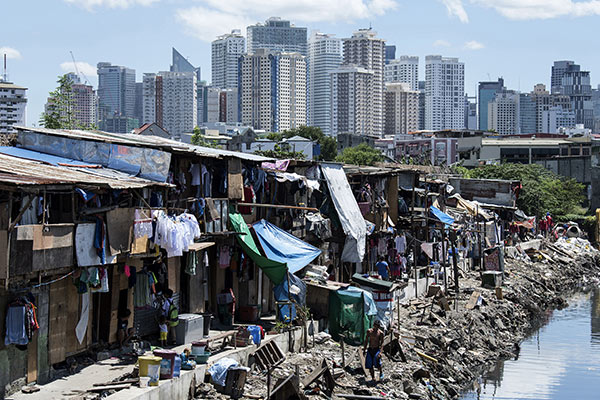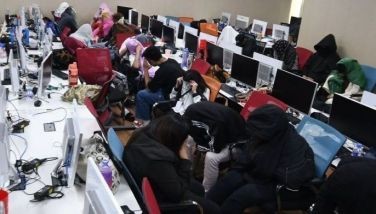Alexis Romero - Philstar.com
December 3, 2017 | 9:02am
MANILA, Philippines — Malacañang on Sunday blamed the higher prices of goods and the depreciation of the peso for the increase in self-rated poverty as it vowed to work for an economic growth that would benefit all sectors.
A Social Weather Stations poll conducted from September 23 to 27 suggested that self-rated poverty in the country rose to 10.9 million families from 10.1 million families in June. Forty-seven percent of the survey respondents considered their families poor, slightly higher than the 44 percent recorded in the second quarter.
Self-rated poverty went up in Metro Manila (28 percent to 31 percent) and rose sharply in the rest of Luzon (34 percent to 50 percent but went down in the Visayas (64 percent to 56 percent) and Mindanao (57 percent to 45 percent).
The same poll indicated that the percentage of Filipinos who consider their families “food-poor” or those who rated themselves as poor based on the food that they eat, was unchanged at 32 percent.
“We attribute the increase to inflation which registered 3.4 percent in September, according to the Philippine Statistics Authority. It is also at this time that the peso depreciated which contributed to the increased prices of goods,” presidential spokesman Harry Roque said in a statement.
“It is for this reason that while the Administration is building a strong and sustainable domestic economy, growth must be inclusive and must be translated to a more comfortable life for all,” he added.
Roque said the government was encouraged by the poll results on self-rated food poverty.
“While we are concerned with the increase in self-rated poverty, we are encouraged by the decrease of families rating their food as mahirap (or) poor which stands at 32 percent in September 2017, lower than the previous administration’s average of 35% in 2015,” the presidential spokesman said.
A check at the website of SWS confirmed that self-rated food poverty averaged 35 percent in 2015. But the 32 percent self-rated food poverty in September was higher by one percentage point than the 31 percent average in 2016.
“We must ensure that the economy serves everyone and leaves no one behind by improving our social services, such as providing free college education, free medicine, free irrigation, socialized housing, conditional cash transfers, among others,” Roque said.






























